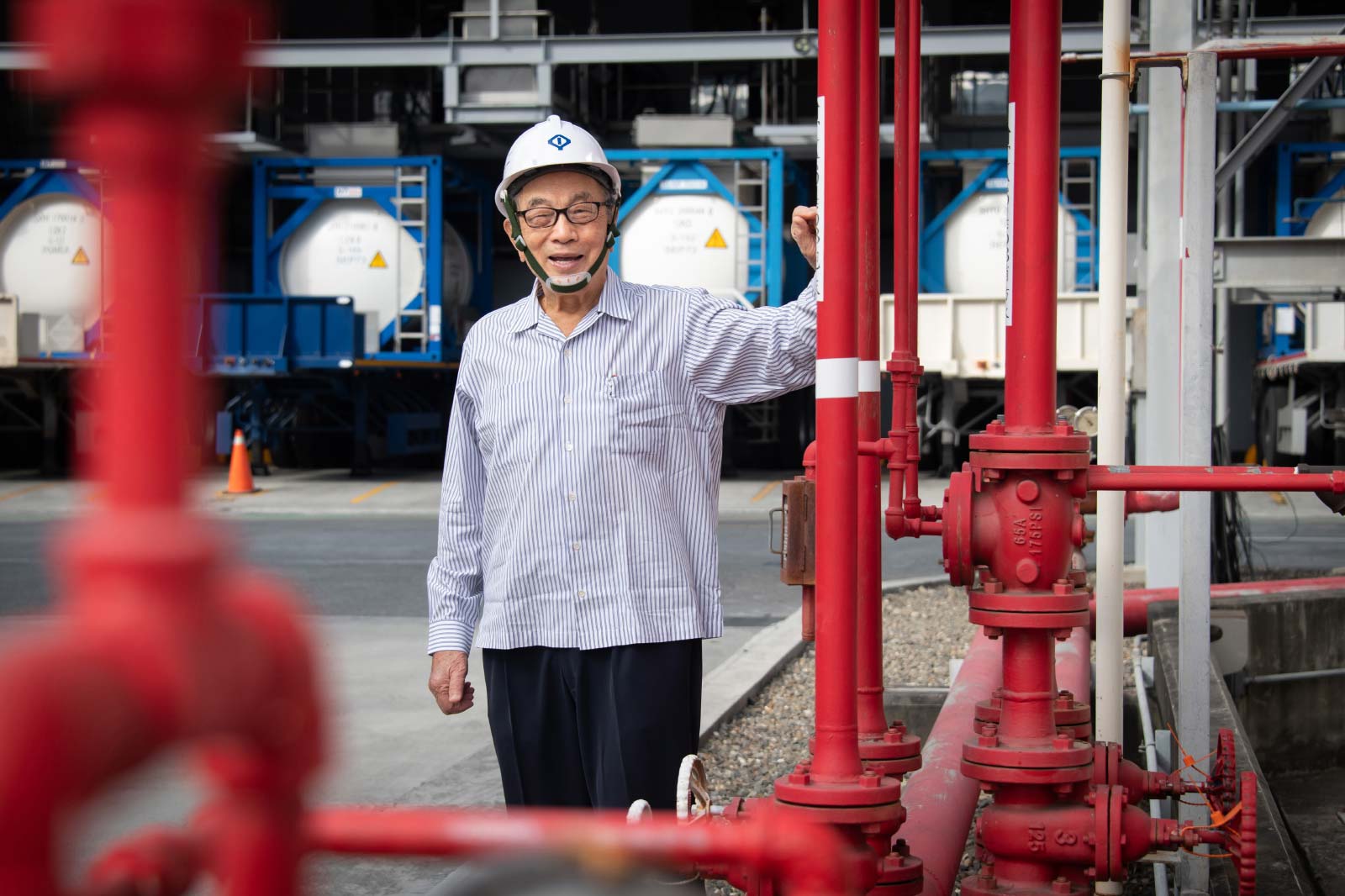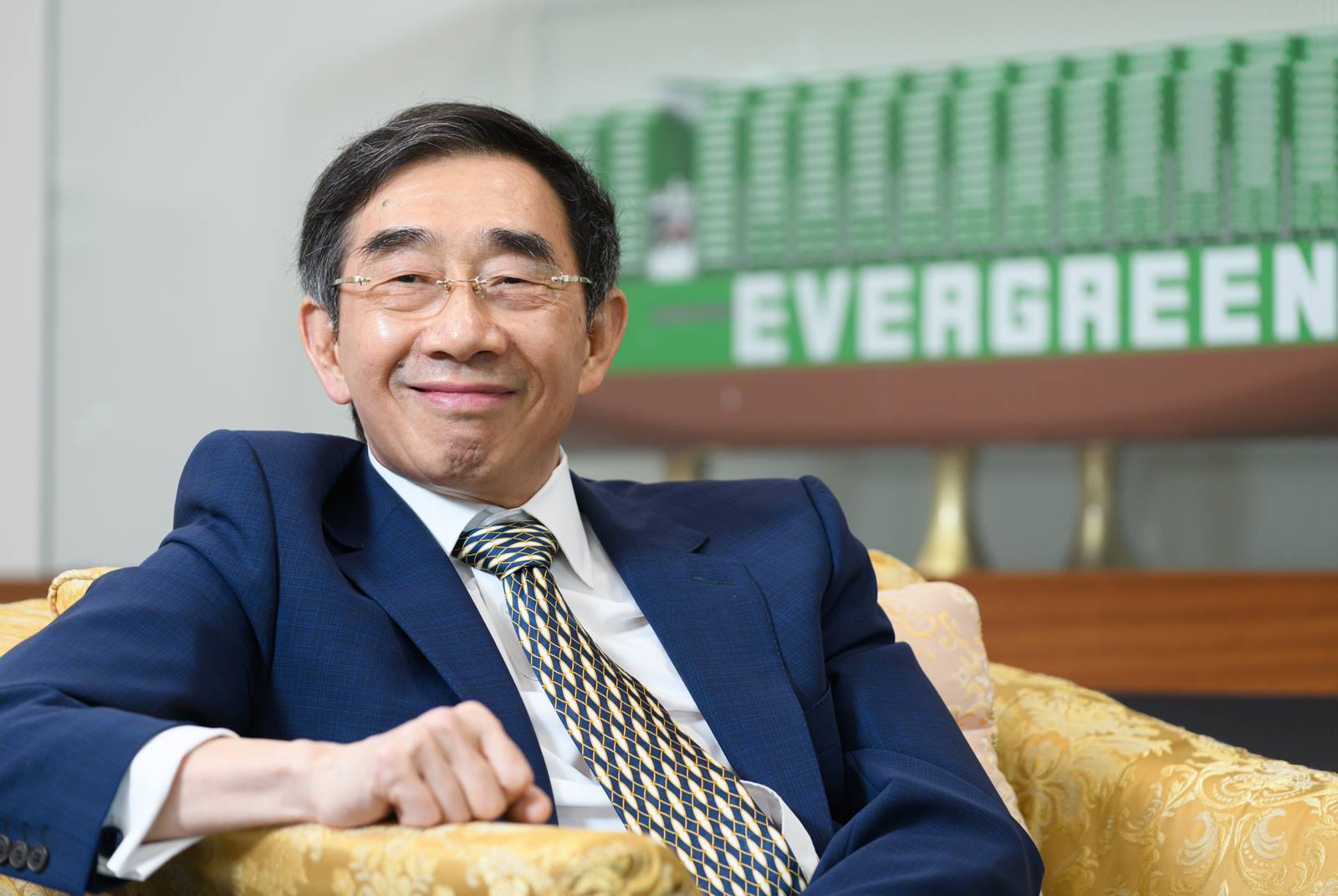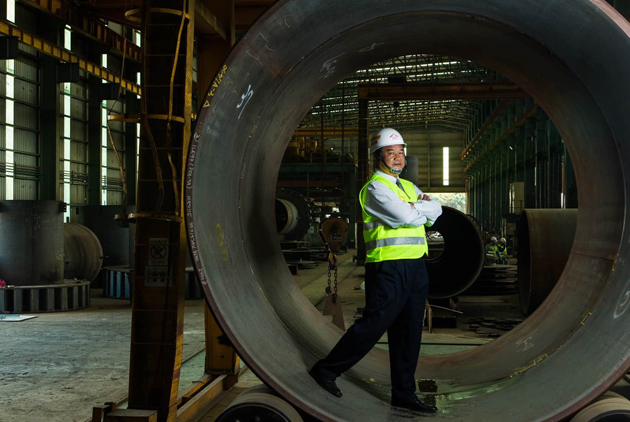2010 Most Admired Company Survey
The Return of Management Fundamentals

Source:CW
The companies heading CommonWealth Magazine's 2010 Most Admired Company Survey had rigorous management systems that resisted the temptations of pre-financial crisis excesses.
Views
The Return of Management Fundamentals
By David Huang, Benjamin ChiangFrom CommonWealth Magazine (vol. 457 )
As China shifts its economic focus from pushing exports to developing domestic consumption, and per capita income approaches US$4,000, it appears to be on the verge of replicating the high consumption era of Taiwan's economic boom. The trend has presented Taiwanese non-high-tech companies with an opportunity to reverse their struggles of recent years.
That sense of optimism was reflected in CommonWealth Magazine's 2010 Most Admired Company Survey, which saw the auto sales and tourism sectors fly up the charts, with more than half of Taiwan's 10 most promising non-high-tech companies coming from those two sectors for the first time. (See Table 1)
Not High-tech? Not a Problem
This year's Most Admired Company Survey covered 22 rather than the usual 23 sectors, leaving out the optoelectronics industry. The industry's leading lights, AU Optronics Corp. and Chi Mei Optoelectronics Corp. (now Chimex Innolux after a merger completed in 2010) both posted losses in 2009, making them ineligible for consideration based on the survey's criteria.
The biggest jump made by any sector was the auto sales and services industry, not only breaking into the top 10 but soaring in the rankings from 20th last year to third in the 2010 survey.
Morgan Stanley Taiwan Limited now estimates vehicle sales will grow by 2 percent in Taiwan this year, far better than its original forecast of a 10-percent decline. With Taiwan's economy projected to grow at a rate of 8-10 percent, the sector's outlook is promising.
According to Enrich Finance Information Co. CEO Frank Kuo, Yulon Motor Co. consumer financing subsidiary Taiwan Acceptance Corp. saw its 2010 first-half revenues grow by NT$3 billion, or 30 percent year-on-year, driven mainly by a boom in new car loans that signaled the automotive market's vitality.
Kim Liang, an assistant professor in Shih Hsin University's Department of Finance who specializes in financial management and marketing, says China surpassed the United States last year as the world's largest car market, with 13.6 million cars sold. China's 12th five-year plan, which takes effect next year, will make raising the wealth of its people a top priority, Liang says, and that new focus, at a time when Taiwan-China relations are improving, will give Taiwanese enterprises an opportunity to capitalize on China's growing demand for cars.
China Steel Back in the Top 10
After a one-year hiatus, China Steel Corp. moved back into the elite club of Taiwan's 10 most admired companies, while power supply giant Delta Electronics Inc., which squeezed into the top 10 in 2009, continued its rise this year by jumping from eighth to fifth. Smartphone maker HTC Corp. jumped past chip designer MediaTek Inc. into third, behind perennial frontrunners Taiwan Semiconductor Manufacturing Co. and Hon Hai Precision Industry. (See Table 2)

China Steel has moved aggressively in recent years to expand its regional presence. In 2008, it completed its takeover of Taiwan-based Dragon Steel Corp. to expand its capacity by 40 percent, bought a 5 percent stake in Formosa Plastics' steel venture in Vietnam, and joined with Japan's Sumitomo Metal Industries to set up a cold-rolled steel plant in Vietnam that will have an annual capacity of 1.6 million tons.
It then moved into China for the first time this year, buying a 70-percent stake in Changzhou Xinzhong Precision Alloy Forging Products Co.
In the 2010 Most Admired Company Survey, China Steel ranked at the top of the metals sector in all 10 indicators, outpacing its rivals by especially wide margins in the categories "finances" and "long-term investment."
China Steel's expansion bucked steel industry trends. But in other sectors, where enterprises were frenetically expanding, some of the top companies in the survey had the resolve to resist the temptation of joining the fray and relied on patience and good management to come out ahead.
Controlling Risk and Avoiding Temptation
Among the 22 sectors covered in the Most Admired Company Survey, the transportation sector was led by U-Ming Marine Transport Corp. and the financial holding company category was topped by Fubon Financial Holding Co. Both companies' success stems in part from prudent management and resistance to the temptation to get bigger, which they exercised prior to the global credit crunch. (See Table 3)

U-Ming's stock has become known in the industry as recession-proof because it has delivered a yield of nearly 10 percent annually for six straight years. The ascension of the company's Singaporean president, C.K. Ong, in the decision-making process has been one of the keys to the company's steady performance.
U-Ming's Board of Directors, for instance, did not push too hard for Ong to launch a fleet expansion when the world economy was more vibrant before the global financial crisis. "Otherwise, the company's profits would have been completely offset by the high cost of purchasing new ships," Ong says.
He describes U-Ming's core competency – bulk carrier shipping – as being particularly vulnerable to global economic volatility. Managing a bulk shipping business, he says, requires having the same instincts as a hunter, relying on experience and interpreting available information to make decisions.
To manage volatility risk, three members of U-Ming's 70-person office staff spend their days interpreting and analyzing global macroeconomic trends, government policies, market transaction data, shipping industry developments, and news related to the company's customers. After being digested and compiled, the information is then posted on the company's internal computer system. From London to Taipei, U-Ming employees rely on this information to help them make decisions around the clock.
In highly volatile industries, companies that make the fewest mistakes usually end up with the best performance, and the detailed information system transmits Ong's mindset of vigilance to the entire U-Ming team.
It also reflects his belief that the key to whether a company is well managed and maintains its competitiveness over the long term "is not related to its products or technology but rather to having the best management system and people." Developing sound management systems, he argues, is a fundamental prerequisite for Taiwanese enterprises aspiring to become world-class companies.
The quality of U-Ming's management was reflected in the Most Admired Company Survey, in which it scored higher than a 7.5 in the categories "vision," "finances," and "long-term investment."
Putting a Premium on Corporate Governance
The most admired companies in the financial holding and life insurance categories, Fubon Financial and Fubon Life Insurance Co., respectively, also resisted the temptation to expand prior to the 2008 credit crunch when Fubon decided not to enter into a strategic alliance with the world's fourth largest investment bank at the time – the now defunct Lehman Brothers.

Fubon Financial president Victor Kung credited the company's prudence to its longtime commitment to corporate governance and the introduction of an independent board of directors system. At present, of the 12 members on Fubon Financial's board, four are independent directors.
The Fubon Group's emphasis on risk management has been instilled in all of its subsidiaries, with Fubon Financial and each subsidiary appointing a chief risk officer and establishing a risk committee. That's why when Iceland's financial bubble burst, Fubon immediately brought its risk exposure under tight control, preventing any further disaster.
"It's impossible to completely avoid any risk, but when a crisis suddenly hits, a risk control mechanism can deliver early warnings and help control the situation," Kung says.
The core philosophy of the Fubon Group's risk management can be described as, "Don't bite off more than you can chew, and don't pursue quick results." Chang Hong-chang, a former dean of National Taiwan University's College of Management and one of the independent directors on Fubon Financial's board, says the company's independent directors play an important role in internal audits and internal risk control, exerting an external influence on the company and often challenging management over leverage ratios.
Prior to the credit tsunami, the directors vetoed new financial products proposed by management because they did not stand up to risk control standards, which kept Fubon Financial's losses during the financial crisis to a minimum. It was also because of these standards that the deal with Lehman Brothers, which had a leverage ratio of 30:1, was rejected, Chang says.
Balanced Short- and Long-term Development
Earlier this year, Taiwan and China signed an economic cooperation framework agreement that will open China's banking market wider to Taiwanese financial institutions, and Fubon Financial is again evaluating potential development there from a risk control perspective. Kung says Fubon Financial has adopted a dual-axis China strategy. One main emphasis will be corporate banking targeted at Taiwanese businesses operating in China, with operations not limited to coastal areas. The company, for instance, has applied through its Chinese subsidiary to set up a branch in Chongqing, which, like other major financial centers in central and western China, is not subject to Chinese banking regulations limiting foreign banks to set up only one branch per year. The application is currently being reviewed by Chinese banking regulators.
The other main emphasis will be consumer finance, primarily targeting Chinese consumers. Fubon Financial intends to position itself in the consumer finance market as a regional bank rather than one that aspires to cover the entire country, starting with the development of a relatively dense branch network in the coastal areas of Fujian Province.
In approaching China's market, Fubon Financial hopes to capitalize on the vast experience it has gained in Taiwan to provide the best possible services across the Taiwan Strait. This strategy exemplifies the company's strengths – Fubon Financial led all rivals in the survey's financial holdings sector in five categories, including "vision," "cross-border operations" and "innovation."
CHT 2.0 – Taiwan's Service Sector on the Rise
Taiwan's service sector, meanwhile, is intent on a full generational upgrade of capabilities. The perennial leader in the Most Admired Company Survey's telecom sector, Chunghwa Telecom Co. is no exception, quietly rolling out its CHT 2.0 plan. Chunghwa Telecom chairman and CEO Shyue-ching Lu says the plan embodies the concepts of strong internal communications, team sharing, and shared innovation.

Lu cites the "Open Opinion Forum" on the company's intranet website as an example of the new model. The forum, designed to understand what employees scattered around all parts of Taiwan are thinking, allows employees to post comments anonymously. Lu and Chunghwa Telecom president Chang Shaio-tung read the messages themselves, offering explanations to those expressing doubts and selecting some suggestions for more careful evaluation to see if they can be put into practice.
Lu says the telecom sector is founded on person-to-person communications but has now advanced into person-to-object and object-to-object communications. To exploit the trend, Chunghwa Telecom hopes to evolve from a standard telecom company into an ICT (information and communications technology) provider, which will require even greater innovation. Applications such as cloud computing services and Hami Apps for smartphones all aspire to satisfy customers' needs and forge a new era in telecom services.
Creating Inexhaustible Wells of Talent
Most companies recognize the importance of talent, but "there aren't many that truly understand what kind of talent they need or that are willing to cultivate that talent," says Chiu Yi-chia, an associate professor in National Chengchi University's Graduate Institute of Intellectual Property.
The unwillingness to develop a succession system stands as one of the biggest bottlenecks in the development of Taiwanese companies. Talent cultivation cannot happen overnight, meaning businesses must not wait until they want to phase in a new manager to start teaching him or her different management-related techniques and knowledge.
Dupont Taiwan Ltd. outpaced Formosa Petrochemical Corp. in the petrochemical category of the Most Admired Company Survey largely because of its inexhaustible reserves of talent.
DuPont Taiwan stresses job rotation in its talent cultivation programs. The company's internal job rotation system moves employees around to new businesses, new organizations and new areas.
"Rotating people even to just a couple different fields is scary, but it provides the best opportunity to train and strengthen an individual," says Walt Cheng, the global business director of DuPont Microcircuit Materials. In his 30 years with DuPont, Cheng has been rotated to a new position every two to three years on average, changing jobs nearly a dozen times, a process that gives managers the ability to run a wide range of businesses.
In September 2010, DuPont Taiwan launched a five-year talent development plan that aims to nurture individuals in its existing talent base into potential successors within the next 1-2 and 3-5 years. "All of our talent is included in the program. Supervisors are responsible for their subordinates' succession guidance programs. Cultivating talent now takes up 30 percent of their time," says Dupont Taiwan chairman and president Steve Chen. He himself is responsible for the career development plans of six top executives and meets with them regularly to discuss and offer advice on their performances.
Professor Chiu stresses that with companies making fresh starts after experiencing the global economic downturn of the past two years, their success will depend on how effectively they get back to basics.
"They will be competing on who has the strongest fundamental management functions. Only by returning to fundamentals will companies be able to maintain stable growth."
Translated from the Chinese by Luke Sabatier





